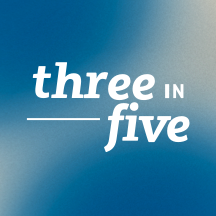Steve Peacher: Hi everyone thanks for tuning in. I'm Steve Peacher, President of SLC Management, this is “Three in Five,” which we ask three relevant and interesting questions to experts across our platform. And I’m really pleased to be joined today by Mark Attanasio, who of course is the co-founder of Crescent Capital, but also the owner of the major league baseball team the Milwaukee Brewers. Mark thanks a lot for taking the time.
Mark Attanasio: Great to be with you today, Steve.
Steve Peacher: So, first question, you know, last year Covid – all of a sudden, we were all at work from home in mid-March right before the season was about to start, and I’m sure you and everybody else, every other owner and team had to scramble. When you look back at all the measures that you had to put in place to deal with Covid, which were the most successful?
Mark Attanasio: Well, we were quite surprised. We're coming to the end of our spring training and getting ready to go from Arizona to Wisconsin to play baseball, when everything came to a hard stop. And I think it was really a challenge for everyone to reengage in June, they called it “summer camp,” but the testing protocols for a group of players who typically, if you go to a major league clubhouse, you've got 25 players, managers, coaches, trainers, you know 40 people in a pretty confined space. We had to figure out how to get everybody in and out of the clubhouse safely without the disease spreading. So mask protocols, hand sanitizer protocols, no different than what we're seeing in our offices, became quite a challenge in a major league clubhouse. And even eating, so there's, every major league clubhouse there's a small cafeteria, not so small, by the way, in Yankees Stadium, for the Yankees. For you know, for most teams it's pretty compact. And the players can no longer eat there because it wasn't safe, so we moved them up to the concourse where the fans normally would be walking through, least in our ballpark, it was called Miller Park now called American Family Field. Guys would be eating in a concourse where fans used to be, so there were a lot of measures we had to take and I’d say that the fact that we kept everyone safe and got through a full 60 game season last year was really, a true measure of success for the league. Dr Fauci who's a baseball fan, if you’ve seen him thrown out first pitches, probably good he's stuck to being a doctor and not a pitcher, but he talks a lot about how he was surprised we were able to get through the season, as we know that the virus was quite contagious, we learned how to limit the spread and that was probably the most successful thing we took away from last year. Which really, by the way helped us this year. We all kind of knew what we were getting into and we were able to get off to a good start this year in baseball with very, very few infections. Some which obviously was that the virus was getting under control, but mostly because we had the safety protocols put in place to limit the spread of the virus if someone did get sick.
Steve Peacher: You know I observed, my unscientific observation last year was some of the star players had subpar years probably not surprising, but what do you think the biggest impact on the players was, in particular, you know none the stadiums had fans and to what extent the fact that the players were in stadiums with no fans around impacted their performance?
Mark Attanasio: Yeah, that was I think a significant impact on players, certainly our players, the Brewers we’re pretty close actually geographically as the crow flies, to Toronto, but since they're different leagues fans or folks. But some may not know that we're almost routinely top 10 in attendance and our ballpark is a roof so it's very loud, so playing without fans was very odd. Opening weekend last year against the Cubs there was no sound piped in either, and so the two dugouts could hear each other chirping so not surprisingly, we had a fight, a little on field altercation in that first series, and baseball moved to piping in sound that became a guess of you could suspend reality, sounded a little more normal, but it really was like the Twilight Zone. I went to several games last year, was pretty much the only person in the ballpark, had very serious testing requirements, because early on, we didn't know – we thought we knew how it spread, but as we found, we originally thought it was by touch and tactile and turns out, it was by air so I’d have to stay inside unless it was outside with the mask. To this day, by the way, I do a saliva testing, PCR testing, three days a week so that, you know, I can be around the players, but in any event, it was very, very strange. And then made more strange, I don't know if you remember Steve, but they put, and I assume they did where you are in Boston and I don’t know in Toronto, I think Toronto, they didn't play there because there's some of the rules in Canada, they played in Buffalo, but and they put cardboard cut outs of fans. So, you had fake sound, cardboard cut outs of fans, it was it was very strange. Everybody's very, very happy to be back to fans, I hear that from all our guys on the team that having fans back in the ballpark is great.
Steve Peacher: You know, I was just a couple weeks ago to game at Camden yards, and it felt pretty normal, except that there was still you know that, because stadium was that wasn't 100% capacity. When you think about changes you know, so any changes that were instituted as part of the pandemic that you think will be long lasting for the league?
Mark Attanasio: Well, we put a couple of changes in last year to shorten the games, we needed to shorten some of the games frankly, because we were concerned about the players being around each other for too long a period of time, we thought that the longer they were around each other the greater the risk, so we went to an extra inning rule which we tried out in the minor leagues for several years before. When you start with a runner on second base, for fans who watch games, it's, we've even had, by the way, we've had players, pitchers, who forgotten that a guy starts on second base in the 10th inning, so it creates a lot of action and some strategy. Baseball purists seem to not like that rule, but it pretty much keeps games to, it seems, 12 innings or less instead of some of these 18 running marathons. So that rule may stay. We also, for when we have to have makeup games and double headers, we've gone to seven inning double headers. That rule I think may stay as well. These are part of a, we have a collective bargaining agreement with our players and a new collective bargaining agreement will come up at the end of this year, so I’m sure those would both be topical. The biggest change, by the way, which isn't pandemic related, I’ll mention is the rise of young players, the this is, I’ve owned the team for think this is season 16 or 17 which is hard to believe, but the athleticism is off the charts relative to where it was in 2005, when I first got involved with baseball. And you see, I mentioned Toronto, you know Vlad Guerrero Jr.’s got 17 home runs already leading major leagues in home runs. In a season that’s been dominated by pitching with six no hitters already, this young player is just outstanding. You see that kind of talent young you know 20-somethings making an impact on the game, so that's not really pandemic related, but that's the biggest change that I’ve seen, which is very positive for sport, these young players are bringing a lot of excitement to our game.
Steve Peacher: Well there's a lot of traditionalist in baseball who may not like the changes, but I, like some of these changes, certainly shortening the games, I think it's great for the fans. So, Mark one final personal question: so, you know now you own a baseball team, but growing up, who was your favorite player?
Mark Attanasio: Well, I grew up in the Italian neighborhood in the Bronx, in Pelham Bay, so I grew up near Yankee stadium I was a Yankees fan. And so Mickey Mantle was my favorite player, he was getting near the end of his career then, but definitely my favorite player and, as mentioned to you before we got on the phone here, I finally got a Mickey Mantle rookie card. My mom saved all my old baseball cards, I’ve got them, but they're sort of in shoe boxes, and this is in like a very fancy plastic case and it looks like it just was opened out of a pack. I’ve got it in a safe, it makes me nervous. But I like that I have it!
Steve Peacher: Well, I guess baseball cards never lose their allure, no matter how, whether you’re kid or whether you’re older. Well, thanks, very much for joining, good luck to the Milwaukee Brewers this year, even though I’m a Cardinals fan, and thanks everyone for listening in and look forward to the next episode of “Three in Five.”
Mark Attanasio: Thank you, Steve.
This podcast is intended for institutional investors. The information in this podcast is not intended to provide specific financial, tax, investment, insurance, legal or accounting advice and should not be relied upon and does not constitute a specific offer to buy and/or sell securities, insurance or investment services. Investors should consult with their professional advisors before acting upon any information contained in this podcast. This podcast may present materials or statements which reflect expectations or forecasts of future events. Such forward-looking statements are speculative in nature and may be subject to risks, uncertainties and assumptions and actual results which could differ significantly from the statements. As such, do not place undue reliance upon such forward-looking statements. All opinions and commentary are subject to change without notice and are provided in good faith without legal responsibility.







